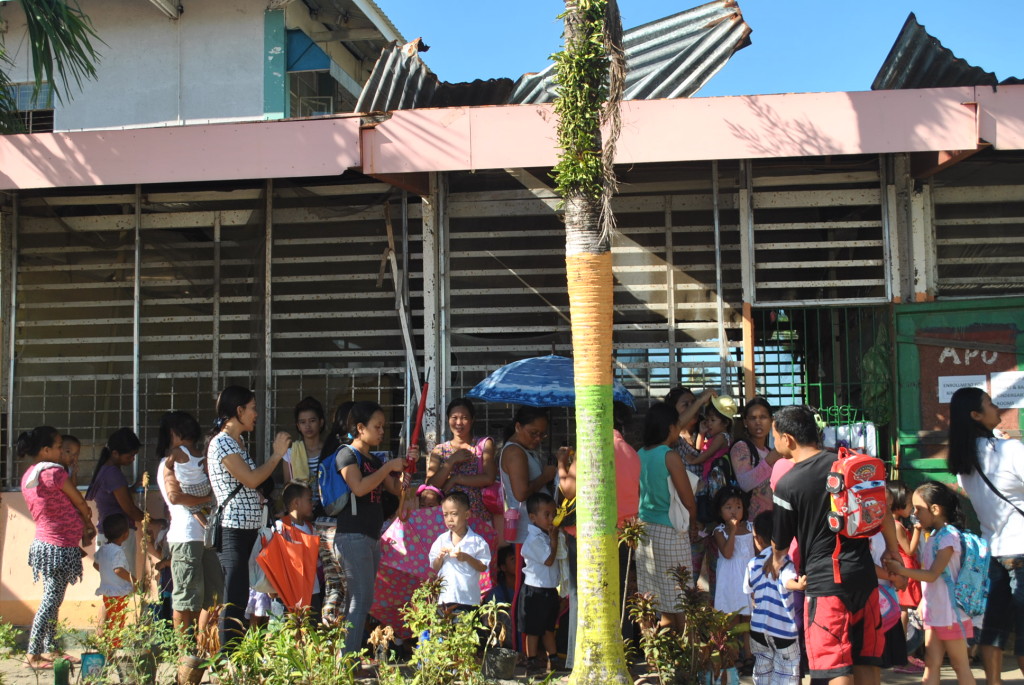
TACLOBAN CITY-Rose Ann Fevidal, 12, is one of the 26 million students who joined the opening of new school year on June 2. Yet her mother, Thelma, a widow and victim of typhoon Yolanda in Tacloban, said that with the new school opening comes also another round of anxiety and sadness for her. “I know, I am supposed to be happy for my child. But I just can’t hide the fact that I’ll be having a big problem in supporting her school needs,” the elder Fevidal, said. She is earning about P50 a day from the small store she puts up in her makeshift house which stands right in the waters of the coastal district of Anibong. “Sometimes when I am running out of capital, I’ll close the store and wash clothes for others to earn money which I use to open the store again,” said the 51-year old mother, adding that she is paid P350 for the laundry job which she also use to buy food and charcoal to fuel her daily cooking. “Now, I am more worried for my daughter. I still don’t have money for her shoes, bag, uniform and for daily allowance to buy little snack at school.” The same also with Ruby Figueroa, 34, single parent and jobless after the company she was working was closed after Yolanda. “My daughter is excited for the school opening, but I still have to find a permanent work to support her,” said Ruby, one of the thousands of residents in the coastal district of San Jose who still lives in “tent cities” and makeshift shelters. Ruby added she still have to find her luck in landing “any job” in the storm-hit Tacloban. Another parent Louel Lagunzad, 50, who lives in a tent shelter in Baloc 1, San Jose, said that with the school opening comes also another problem of how to support his 10 children. “I’m getting crazy on this. I badly need help. I have no work, no house, no money and not even food for my children because the giving of food relief for us typhoon victims already stopped,” said Lagunzad. At one point in the interview, Lagunzad disclosed he is always carrying a bottle of water with him to make him feel his stomach is “full” when he feels hungry. “We go one-day, one- eat here” he said, adding he is uncertain if his children can go back to school. Lagunzad called on the government to give them immediate livelihood assistance to help them support their family and the schooling of their children. (RONALD O. REYES)



